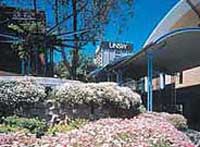Criminal Laws - LAWS1022
Faculty: Faculty of Law
School: Faculty of Law
Course Outline: See below
Campus: Kensington Campus
Career: Undergraduate
Units of Credit: 6
EFTSL: 0.12500 (more info)
Indicative Contact Hours per Week: 3
Enrolment Requirements:
Prerequisite: LAWS1021 or JURD7121 or LAWS1001 or JURD7101
Excluded: JURD7111, JURD7122, LAWS1011
CSS Contribution Charge: (more info)
Tuition Fee: See Tuition Fee Schedule
Further Information: See Class Timetable
View course information for previous years.
Description
Throughout, detailed doctrinal analysis of the chosen offences/defences takes place and students develop the skills of legal element analysis of both statutory and common law offences and defences.
Course Learning Outcomes
- Demonstrate awareness of principles of criminal justice and their relationship to the broader context;
- Navigate and explain the basic doctrines, principles and rules relating to pre-trial procedure in criminal litigation;
- Use statutory interpretation principles to identify the constituent elements of criminal offences and apply to hypothetical fact scenarios;
- Demonstrate effective written communication skills by articulating legal concepts clearly, persuasively and appropriately;
- Demonstrate an ability to incorporate a range of legal and interdisciplinary research sources in written communication with appropriate referencing;
- Demonstrate effective oral communication skills by discussing and debating course concepts in a scholarly, reflective and respectful manner; and
- Engage in reflective practice regarding the criminal law’s role in serving society and promoting justice.
Topics
- Homicide (murder, manslaughter)
- Defences (including mental illness, automatism, self-defence, provocation, substantial impairment, intoxication)
- Assault (including aggravated assault and domestic violence)
- Sexual Assault
- Dishonest Acquisition
- Extending Criminal Liability (including complicity)
- Sentencing
Assessment
Final exam - 60%
Class participation - 10%
Texts









